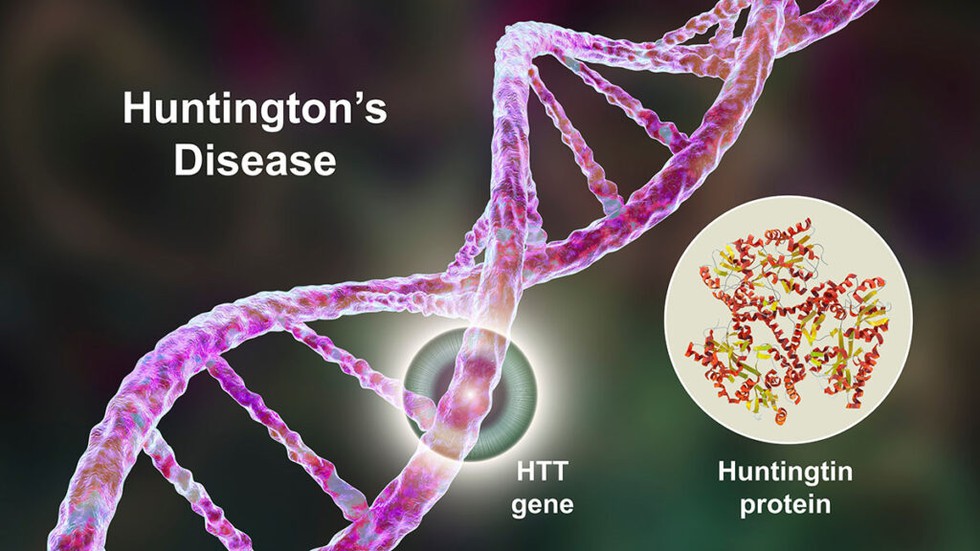About Huntington’s Disease:
- HD is an inherited disorder that causes nerve cells (neurons) in parts of the brain to gradually break down and die.
- It has a wide impact on a person's functional abilities and usually results in movement, thinking (cognitive) and psychiatric disorders.
- There are two types of HD:
- Adult-onset is the most common. Persons with this form usually develop symptoms in their mid-30s or 40s.
- Early-onset affects a small number of people and begins in childhood or in the teens.
- Cause:
-
- A genetic change (mutation) in the HTT gene causes HD.
- The HTT gene makes a protein called huntingtin. This protein helps your nerve cells (neurons) function.
- The normal HTT gene contains a stretch of DNA that specifies the number of times the amino acid glutamine is repeated in the Htt protein. This number varies from 11 to 31.
- In the mutant versions of the HTT gene, this stretch is expanded to encode 35 or more repeats.
- As the number of repetitions increases, the severity of Huntington’s disease increases and its debilitation begins at an earlier age.
- HD is rare. The disease is passed down through families.
- Symptoms:
- HD usually causes movement, cognitive, and psychiatric disorders with a wide spectrum of signs and symptoms.
- The patient suffers mood swings, has difficulty in reasoning, shows abnormal and uncontrollable jerky movements, and experiences difficulty in speaking, swallowing, and walking.
- Treatment:
- There is no cure for There is no known way to stop the disease from getting worse.
- The goal of treatment is to slow the symptoms and help the person function for as long as possible.
